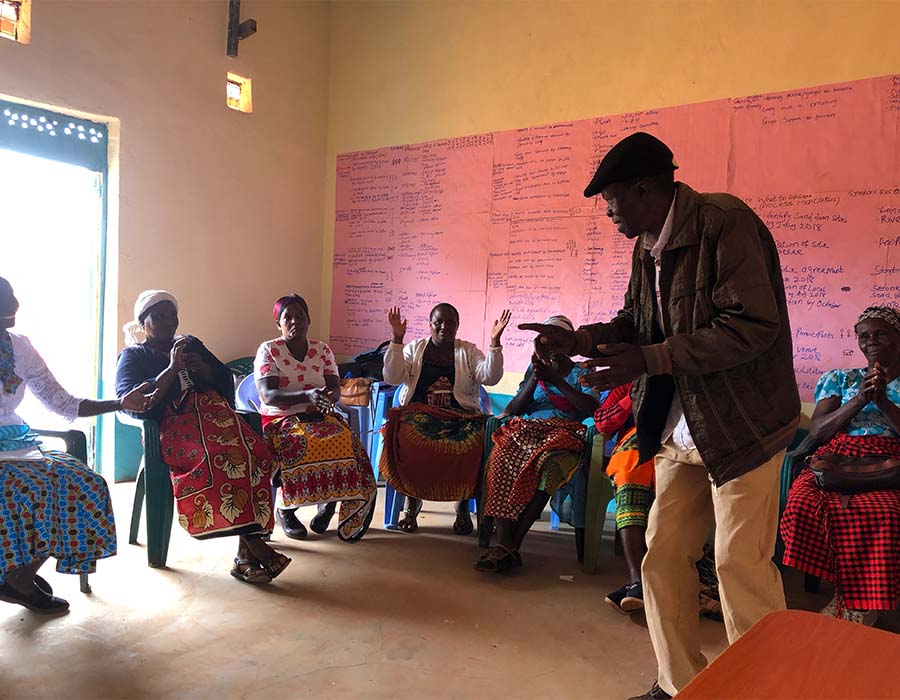As COVID-19 wrought havoc across the world in 2020, expat aid workers were on the move. Not flying into the developing world but flying home.
Some aid experts view this mass evacuation as a harbinger for change in the way foreign aid is delivered. With fewer expat aid workers on the ground in developing countries, there is an opportunity for local agencies to claim, ‘greater ownership over humanitarian responses and development cooperation’, and for the aid industry to fund local actors to support locally led response. COVID-19 has the potential to boost ‘localisation’: local control over international aid.
That’s certainly a positive, but ABM’s Anglicans in Development has been using a strongly localised approach for decades. As a church agency, AID has an approach that already devolves power and funding to our local partners in Africa, Asia and the Pacific. What makes us different?
AID is a non-implementing aid agency. The projects that we fund are designed and staffed by our local Anglican Church partners. In the internationally-agreed 2016 ‘Grand Bargain’, many agencies agreed to ‘Achieve by 2020 a global, aggregated target of at least 25 per cent of humanitarian funding to local and national responders as directly as possible’. In 2020, the aid industry was still far from reaching its 25% target, with one UK-based research group calculating that the percentage of funding going to local organizations between 2016 and 2020 actually decreased from 3.5% to 2.1% (this criticism led to the complete removal of a % target when major aid organisations formulated Grand Bargain 2 in 2021). But AID holds itself to higher standards of localisation. Even before 2016, AID had far exceeded this 25% target, with more than 95% of our development and humanitarian funding being channelled through local partners.* In 2021, more than 99% of AID’s overseas aid funding went through local partners.
AID commits to long-term partnerships. Although some aid agencies enter into short-term partnerships with local agencies, lasting just a few years or even less, some of our partnerships in the Pacific are more than 100 years old! AID thus benefits from a deeper understanding of its local partners and a deeper relationship of trust than most other aid agencies.
AID’s local partners are church partners. That means they have strong grassroots networks and trust, have a long-term commitment to the communities where they work, and have strong historical roots. In these respects, our partners differ from many NGOs and other newer local institutions. The grassroots networks mean our partners are well placed to bring community voices to decision-making forums. Their long-term commitment and strong historical roots give them a strong sense of legitimacy amongst those they represent and within decision-making fora.
Today, as COVID-19 continues to harm families and economies across the developing world, AID’s partners are on the front line. They have provided water basins at designated community meeting points in Kenya. They have delivered emergency soap, rice, and sardines to households in the Philippines and installed water supply systems in PNG and Vanuatu. They have brought COVID-19 posters and personal protection equipment to communities in Myanmar, and in Zambia, community groups now wear masks to provide door-to-door gender awareness raising instead of addressing large gatherings of people.
AID’s localised way of working has given our projects geographical reach and high levels of trust in even the most remote communities. And our way of working continues to deliver results to communities in the ongoing fight against COVID-19.
* Many AID programs are partly funded by Australian Aid.
